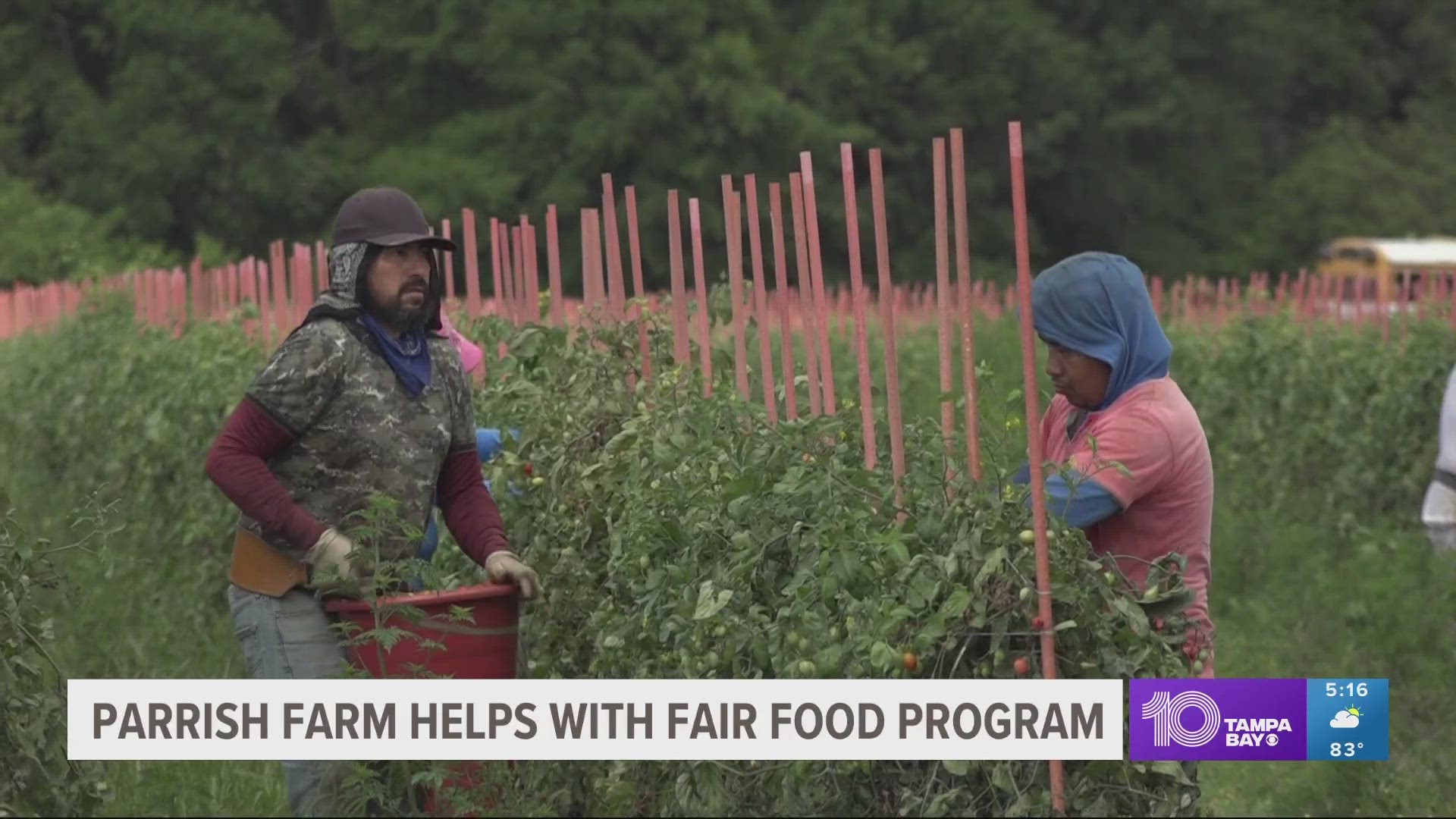PARRISH, Fla. — A farm in Manatee County is playing a role in helping change policy and procedures on farms in South America.
A delegation of government officials and human rights representatives from Chile met with growers and farmworkers.
It's part of a move to expand the Fair Food Program towards prioritizing the welfare and human rights of farm workers.
"The expansion of the Fair Food Program is something that's very important to me, both on a personal and business level," Jon Esformes, CEO of Pacific Tomato Growers, said.
The tomato farm located in Parrish has been in the Esformes family for four generations. Esformes said he has seen the agriculture industry grow over the years and has tackled different challenges.
In partnership with the Fair Food Program, his business is being audited in full view of members of the Chilean delegation who have come to learn about compliance, laws and policies that help with the day-to-day guidance in operations.
"The Fair Food Program has helped us to develop a system into a program where we can ensure the safety and health of everybody that's working for us," Esformes said.
Some of those programs include preventing abuses that often plague migrant farmer communities like forced labor, wage theft and various forms of trafficking. The programs are also among some widely recognized by various local law enforcement agencies and human rights observers as having a wide range of impact because the focus on prevention-based solutions
"As workers, we didn't have a voice to report these kinds of abuses on the job because if we did we'd be penalized or fired," Lupe Gonzalo, one of the coordinators with the Coalition of Immokalee Workers, said.
The Coalition of Immokalee Workers in South Florida initiated the Fair Food Program in 2011. The group is supported by the Fair Food Standards Council and the U.S. Department of Labor. In February, the USDOL awarded a $2.5 million grant to the Fair Food Standards Council to fast-track the implementation and expansion of the program. The key goal is to "promote grassroots, worker-driven social responsibility in agricultural supply chains."
"We try to learn more with this program. It doesn't stay just at my job but spreads to where other farmworkers can be protected," Gonzalo said.
The delegation includes officials from Chile's Ministry of Labor as well as its Ministry of Agriculture.
"They need to work together and they're coming here and they're making some sort of like acquaintance," Monica Alcalde said, who works with the Fair Food Program and its expansion to Chile.
The intended pilot projects of the Fair Food Program, if successfully implemented, would focus on cut flower farms in Chile, Mexico and South Africa.

